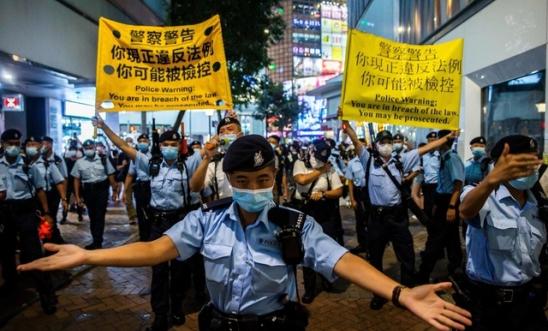
Press releases
Hong Kong: Women’s Day march first authorised protest since 2020 comes amid worsening crackdown

An International Women’s Day march scheduled for this Sunday will be the first officially authorised protest in Hong Kong since 2020. The Hong Kong Women Workers’ Association announced on Thursday that it had received a verbal approval for a “notice of no objection” regarding the march.
However, the event will take place against the backdrop of an escalating crackdown on human rights and civil society in general, Amnesty International said.
Hana Young, Amnesty International’s Deputy Regional Director, said:
“The first authorised protest since the emergence of Covid-19 three years ago is a significant moment for Hong Kong, but Sunday’s planned march will take place as the Government intensifies its wider crackdown on human rights in the city.
“Since mass protests in 2019, the Hong Kong authorities have repeatedly and aggressively curtailed the rights to freedom of expression and peaceful assembly with unlawful force and vague legislation.
“Sunday’s demonstration should be allowed to take place without interference from the police – a right that has rarely been afforded to peaceful protesters in Hong Kong in recent times, and certainly not since the introduction of the repressive National Security Law.
“Authorities also need to continue to facilitate other types of peaceful protests, or else allowing this march will merely be a token gesture.”
Brutal crackdown on freedoms
Hong Kong’s once-vibrant civil society has been decimated since a National Security Law was imposed by the Chinese central government on 30 June 2020, with scores of activists and opposition politicians facing potential life imprisonment for their legitimate activities.
Hong Kong’s annual Tiananmen crackdown vigil has been banned three years running since 2020 – ostensibly on Covid-19 grounds. Organisers of the vigil are currently in jail.
In December 2022, the Hong Kong High Court found that the blanket ban on the 2021 vigil was excessive, as police had not seriously considered allowing a gathering with appropriate health measures and other conditions.
Meanwhile, numerous civil society groups – including groups that had previously organised large-scale peaceful protests, often in cooperation with police and other government authorities – have been forced to disband, with many members facing charges under the National Security Law and a colonial-era sedition act.
The UN has long expressed concern about the Hong Kong government imposing excessive restrictions on the right to freedom of peaceful assembly. According to Hong Kong’s Public Order Ordinance, those wishing to organise a protest are required to obtain “a notice of no objection” from the police before it may take place. These rules and policies violate international human rights law and standards.